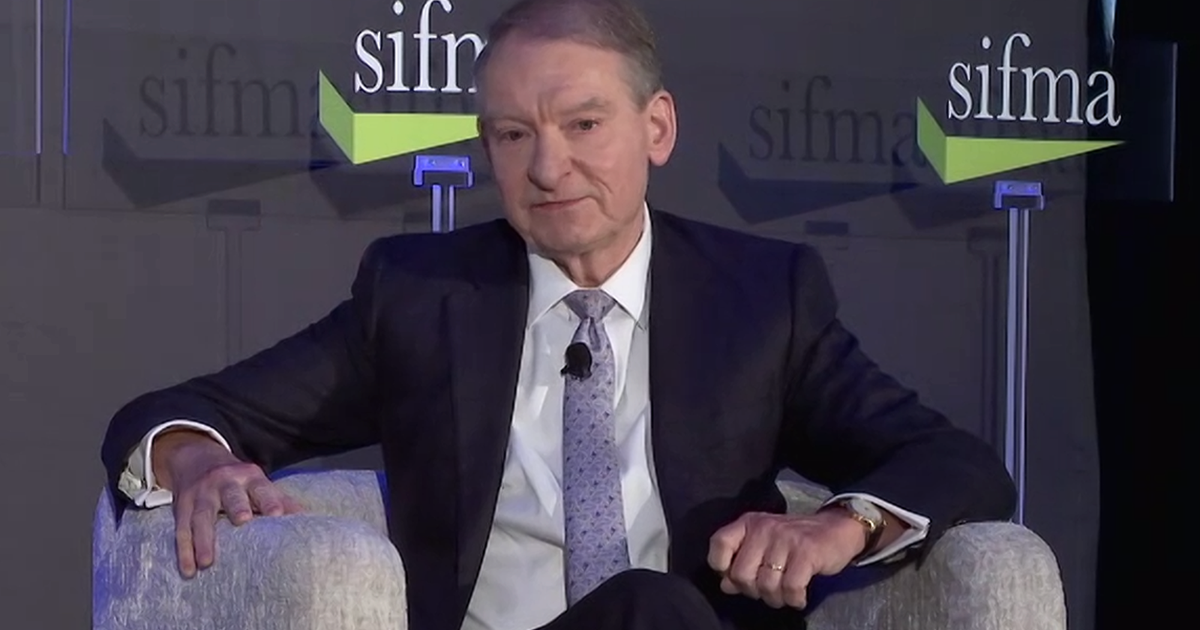SEC Chair Backs Private Markets in 401(k) Plans


Federal regulators and the brokerage industry’s premier lobbying organization are moving full steam ahead in the push to include private market exposure in defined contribution retirement accounts.
Securities and Exchange Commission Chair Paul Atkins said investors would benefit from private markets inclusion in 401(k) plans “within reason” during a conversation with Securities Industry and Financial Markets Association CEO Ken Bentsen at the organization’s annual meeting in Washington, D.C.
Atkins said he expected the SEC to hold roundtables focused on boosting retail investor access in private markets “on the road” as it mulls potential rulemaking and coordination with the Department of Labor.
“I’ve been an investor in private markets for a long time myself, so I think I carry some insights into that and how we can approach that with the Department of Labor to try to make it accessible to investors,” Atkins said. “But, if you talk to any sort of asset manager or even pension fund managers, they’ll tell you that you cannot have a balanced, diverse portfolio if you don’t have exposure these days to the private markets.”
The discussion follows President Donald Trump’s August executive order aimed at increasing access to alternative assets (including private equity, private credit, real estate, real assets and cryptocurrency) in 401(k) plans. In the order, Trump requested that the DOL work with the SEC and other regulators and revisit existing ERISA guidance on alts’ place in retirement plans.
The order is similar to actions taken during Trump’s first term, when he ordered the Labor Department to clarify that retirement plan administrators could include private equity in portfolios. (The guidance was late rescinded during the Biden administration.) In May, the DOL also rescinded a 2022 order by the Biden administration that discouraged the use of cryptocurrencies in 401(k)s.
Supporters argue that retirement savers are missing out on private markets and often point to the fact that workers in traditional defined benefit plans have exposure to private assets. In contrast, those with defined contribution plans do not. However, critics are cautious of the broader risks; in New York Times Magazine last week, for example, Andrew Ross Sorkin wrote that expanding private markets to retirement savings would be a “live and extremely high-stakes test of whether the most complex corners of finance can be safely opened to millions of ordinary savers.”
The session took place amid renewed scrutiny of private assets caused by the announced bankruptcies of U.S. auto parts supplier First Brands and car dealership Tricolor, and recent comments from JPMorgan Chase CEO Jamie Dimon during the bank’s third quarter conference call, when he remarked, “I probably shouldn’t say this, but when you see one cockroach, there are probably more.” That prompted a slew of responses from executives at major alternative asset management firms (including at last week’s CAIS Summit), defending private credit’s track record. For example, several executives noted that the bankrupt firms had borrowed from banks, not private credit shops.
Like Bentsen and Atkins, Stifel CEO (and SIFMA Chair-Elect) Ron Kruszewski stressed that protecting investors from harm was of first importance. In a talk during the conference, Kruszewski argued that post-2008 crash regulations pushed risk out of the banking system, which he argued made it harder to surmise how much leverage is actually at play in the system.
“It’s simply a reminder that systemic risk doesn’t disappear; it changes shape,” he said. “History doesn’t repeat, but it does rhyme. Our job is to understand the rhyme before it becomes the verse.”
However, Kruszewski also underscored SIFMA’s position that companies are staying private for longer, and that the organization supports expanding private market “access responsibly” to everyday investors, especially through 401(k)s and retirement plans.
“The goal is to broaden access while maintaining the standards that protect investors and confidence in the markets,” he said.
During an afternoon discussion with Bentsen, House Financial Services Committee Chairman U.S. Rep. French Hill (R-Ark.) reiterated his desire to revamp the “accredited investor” definition governing which individual investors can access private markets.
Hill also said Congress may hold hearings on alternative asset access in the defined contribution space, and suggested private market allocations could be beneficial for investors based on their incorporation in defined benefit plans.
“So, I think the allocation to private investing there is attractive for a long-term holder with the right timeframe,” he said. “But I think it’s a structure challenge.”

Many people use their phones to handle everyday tasks, from scheduling appointments to staying connected with family. Budgeting apps are...

Parent PLUS borrowing will be capped beginning July 1, 2026: up to $20,000 per student per year and $65,000 lifetime...

Advisors affiliated with independent broker/dealers often assume that “independence” is a destination rather than a spectrum. Yet, when frustration creeps...